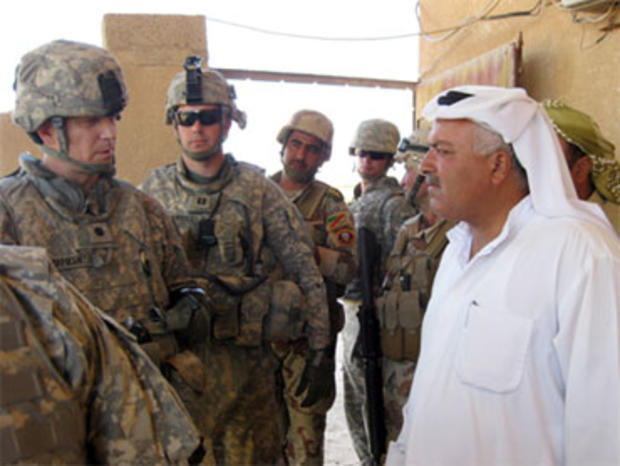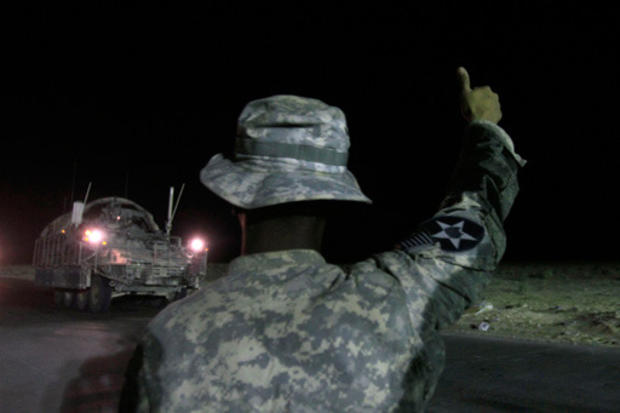Obama to Walk Tightrope in Iraq Speech
The White House said Monday that President Obama will avoid the words "mission accomplished" in his Tuesday night speech heralding the end of major combat operations in Iraq.
That phrase came back to haunt President Bush after it appeared on a banner behind him during a 2003 appearance on an aircraft carrier meant to herald much the same thing. As the war dragged on, the "mission accomplished" moment became a potent symbol for Mr. Bush's critics.
Yet while Mr. Obama will avoid those words, they do reflect the message he wants to send. The president campaigned on his opposition to the war, and in a period of grim economic news, the White House is eager to trumpet what it is casting as his following through on his promise to bring an end to the war.
"As a candidate for this office, I pledged I would end this war," Mr. Obama said in his weekly address Saturday. "As president, that is what I am doing. We have brought home more than 90,000 troops since I took office."
While the United States has removed the last of its combat brigades from Iraq, however, nearly 50,000 soldiers are scheduled to remain in the country through the end of next year. These "non-combat" troops will be combat-capable, as Defense Secretary Robert Gates has acknowledged, and some will continue to carry out targeted counterterrorism operations.
So while the U.S. military is officially shifting to a diplomatic mission (optimistically dubbed "Operation New Dawn"), America likely has not yet seen its final casualty from one of the longest wars in its history.
Gen. Ray Odierno, who hands over the reins as commander of U.S. forces in Iraq Wednesday, told the New York Times over the weekend that if the stalemate over a new government is not broken in the next two months it could lead to a call for another election, something that could mean an uptick in violence.
Republicans, meanwhile, have been eager to undercut Mr. Obama's trumpeting of the end of major combat operations by noting that he and other top Democrats opposed the surge strategy that many credit with bringing a fragile sense of stability to Iraq. House Republican Leader John Boehner released a web video showing the president and other Democrats saying the surge won't work, and Sarah Palin had this to say on Twitter: "Tues:Obama Iraq speech;poor leadership if this fierce opponent of the surge can't give credit where credit's due.Credit due GW,McCain,troops."
Mr. Obama eventually acknowledged that the surge succeeded, though White House press secretary Robert Gibbs also pointed Monday to the Sunni Awakening and "a better political environment" for helping to bring the country to its current point. He stressed that the war would never have happened had Mr. Obama been president when it began and said it took the U.S. focus off the war in Afghanistan, which most Americans believe is not going well.
Asked in a CBS News poll last week who should get credit for the current situation in Iraq, one in three said both the Obama and Bush administrations. Twenty-six percent credited the Bush administration, 20 percent credited the Obama administration, and 19 percent said neither deserves credit.
Gibbs said Monday that Mr. Obama plans to call Mr. Bush ahead of his remarks, though he would not divulge what the two men planned to discuss.
One question yet to be answered is whether the war - which has come at a cost of more than 4,400 American lives and over $700 billion - was ultimately worth it. (59 percent of Americans say no.)
It's a question that Odierno, who has run the U.S. war effort for roughly half a decade, says cannot yet be answered.
"I say to everyone, we won't know probably for 3 to 5 years," he says. "If nothing else, we got rid of a tyrannical dictator who will no longer be able to terrorize the Iraqi people."

